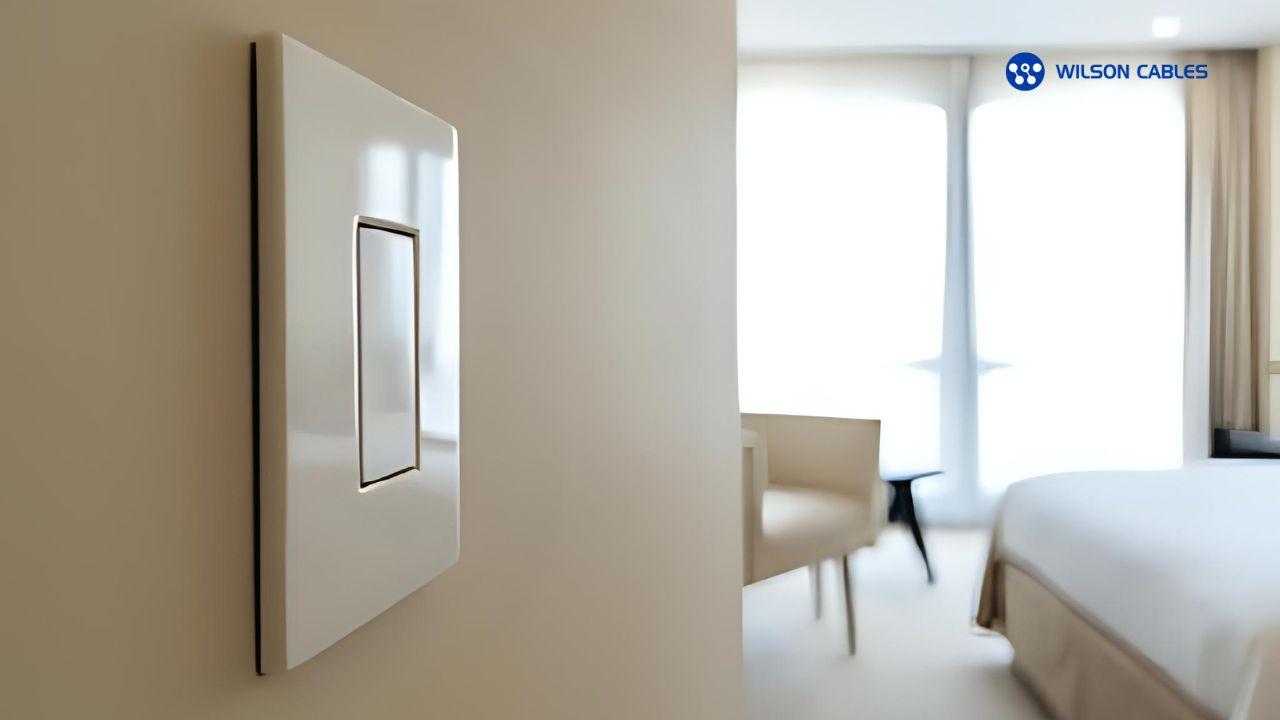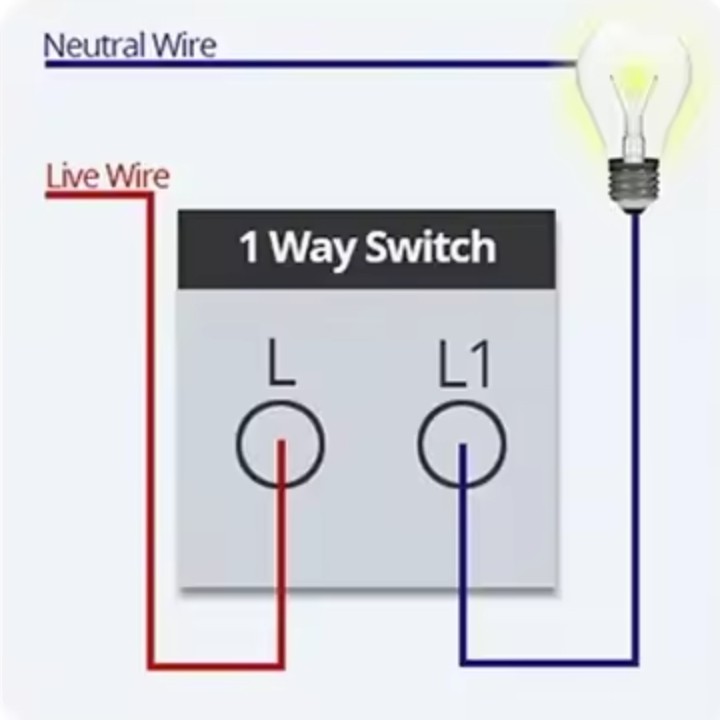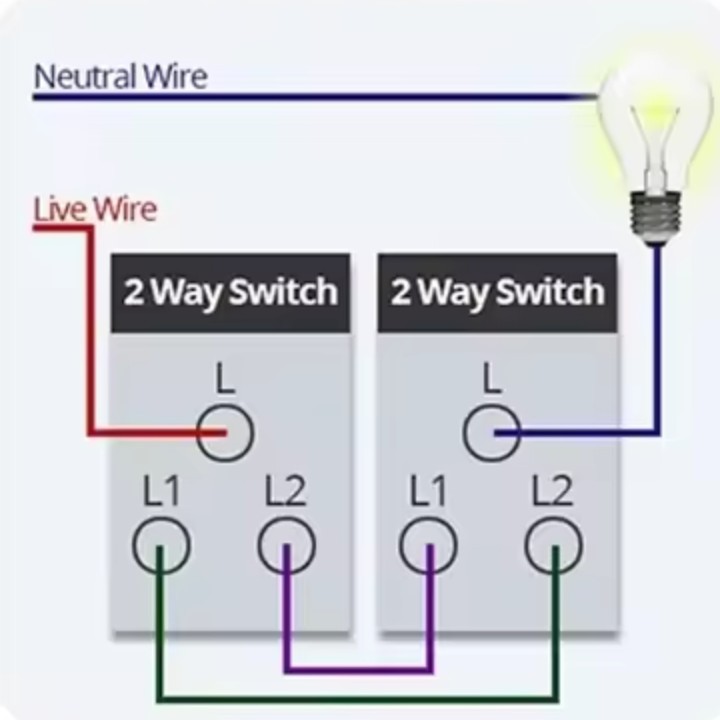
Switches are an important component in home and building electrical installations, serving to connect and disconnect the flow of electricity to lights or electronic devices. Of the many types of switches available, the two most commonly used are single switches and two-way switches (often referred to as hotel switches).
Although both serve to control electrical current, they have fundamental differences in function, installation methods, and usage. Understanding these differences is important so that you can choose the right type of switch for your room's needs.

Image: AliExpress
A single switch is the most common type of switch used in homes. Its function is simple, namely to turn lights or electronic devices on and off from a single control point.
Single switches are usually installed on the wall near the entrance to a room making it easy for users to turn on the lights. This type of switch is suitable for small rooms such as bedrooms, bathrooms, or kitchens that only require one control point.
Advantages of single switches:

Image: AliExpress
A two-way switch, better known as a hotel switch, is a type of switch that allows you to control a single light from two different points. For example, one switch is installed at the entrance to the room and the other near the bed. That way, the light can be turned on or off from two different positions.
This type of switch is often used in:
Advantages of two-way switches:
|
Description |
Single Switch |
Two-Way Switch (hotel switch) |
|
Control Point |
1 point |
2 points or more |
|
Function |
Turns the light on and off from one location |
Turns the light on and off from two different locations |
|
Application |
Small rooms, bedrooms, kitchens, bathrooms |
Large rooms, stairs, hallways, hotels, public areas |
|
Installation |
Simpler |
More complex, requires additional wiring |
|
Cost |
Cheaper |
More expensive due to more complex materials and installation |
The choice between a single switch and a two-way switch depends on the needs and conditions of the room.
Regardless of the type of switch you choose, ensure that the installation uses quality electrical cables to ensure safety and durability. Cables that do not meet standards can pose a risk of short circuits, fires, or damage to electronic devices.
Wilson Cables offers a variety of SNI-certified electrical cables, including NYA, NYM, and NYY cables, which are ideal for residential and commercial installations. Your electrical system will be more stable, safe, and reliable when using high-quality cables from Wilson Cables.
![]()
Image: NYA cable from Wilson Cables
![]()
Image: NYM Cable from Wilson Cables
![]()
Image: NYY Cable from Wilson Cables
The main difference between single switches and two-way switches lies in the number of control points and their application. Single switches are suitable for small rooms with simple needs, while two-way switches are more efficient for large rooms or areas that have two access points.
Don't forget to always use the best electrical cables from Wilson Cables for safe and high-quality installation results.